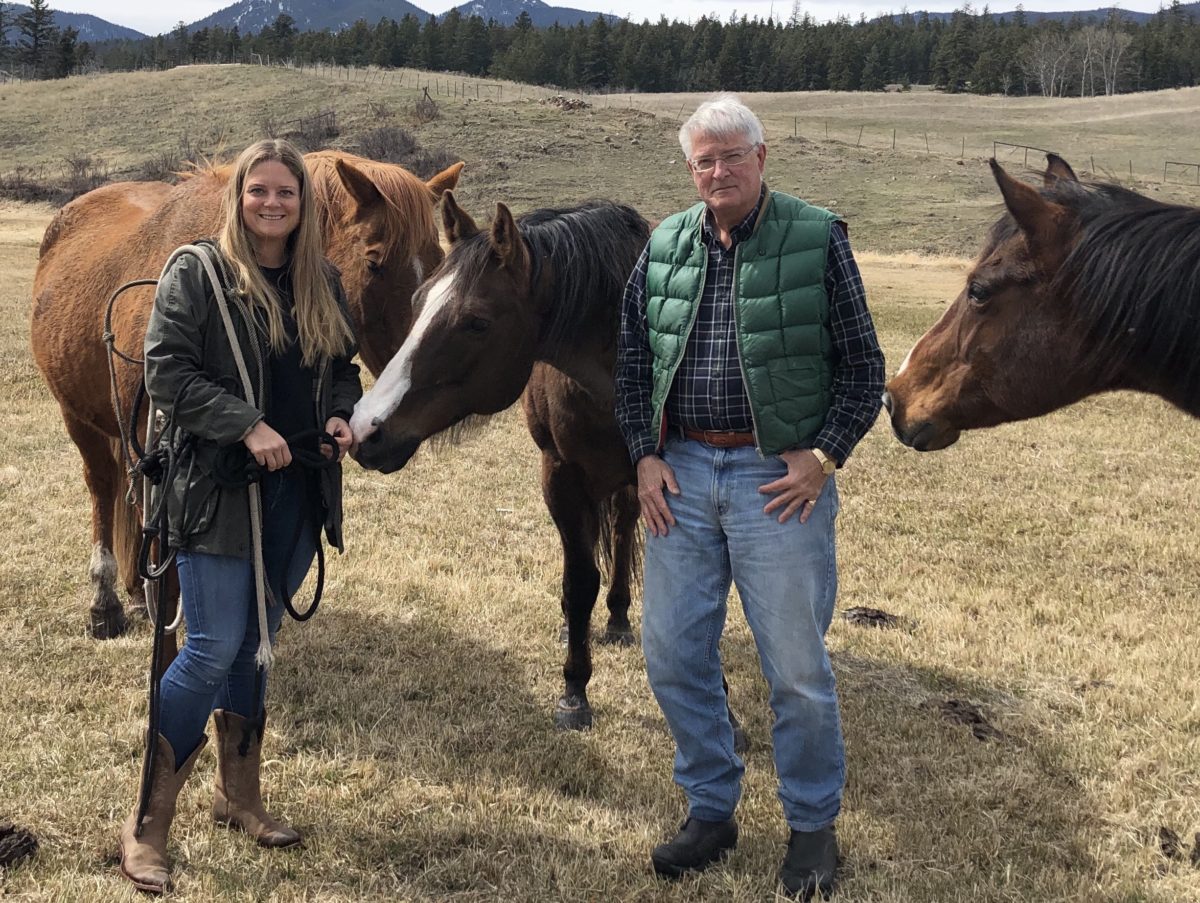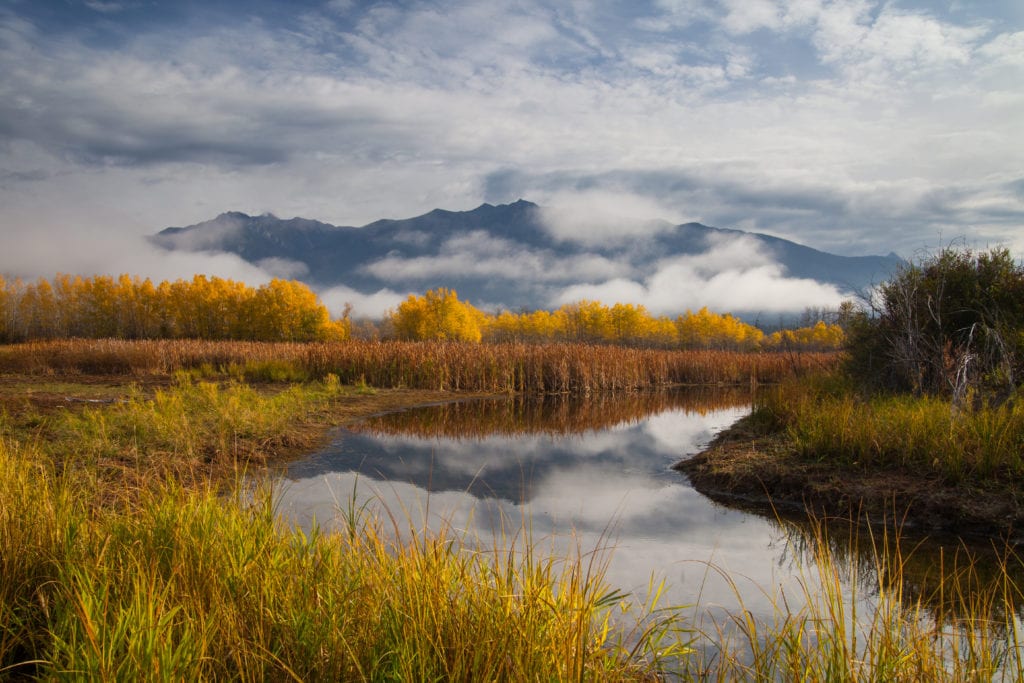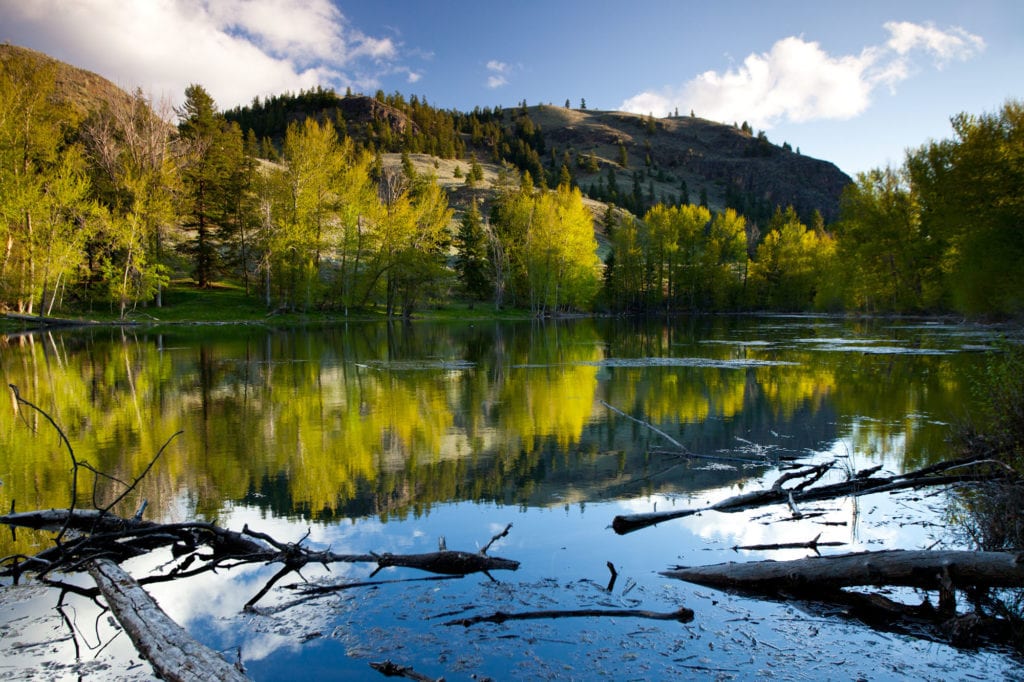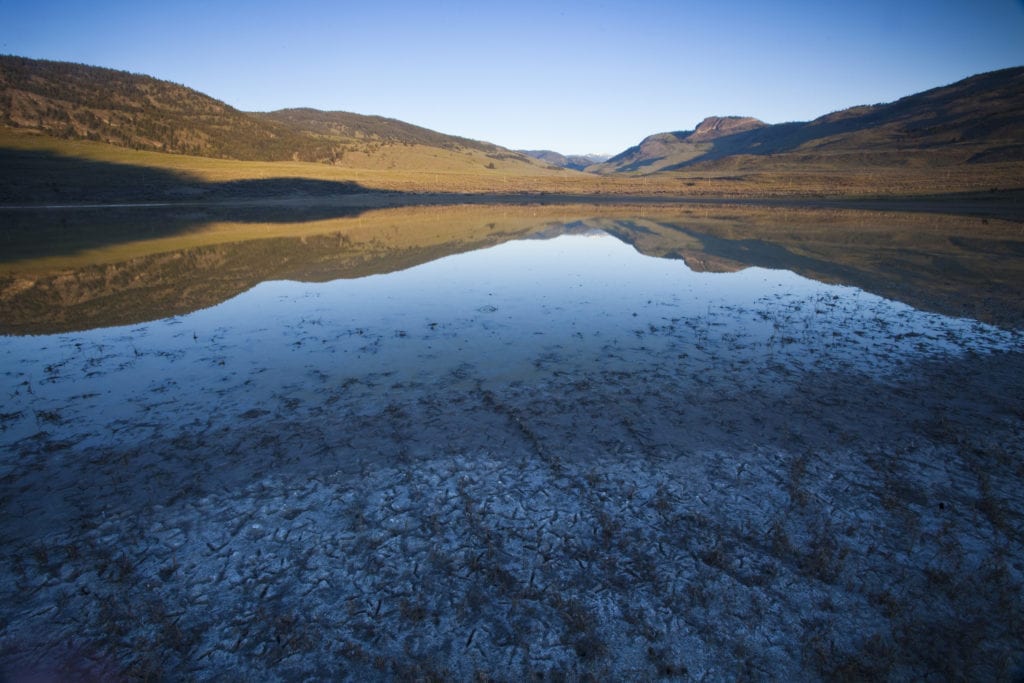
Since its founding in 1971, The Nature Trust of British Columbia has brought together some of the brightest minds in business and science to guide its future. Many members of the board of directors are not only passionate about conservation, they also love the outdoors. John West, business executive, entrepreneur and fly fisherman, is one of those people.
John served on The Nature Trust of BC board for ten years including two years as chair and is currently a member of the advisory board. John brings a valuable business perspective to The Nature Trust but horseback riding, hiking, canoeing and fly fishing make the importance of conservation come alive for John. The outdoor spirit carries on in his daughter Jennifer West, a realtor and a millennial with a keen interest in conservation.
John and Jennifer sat down with The Nature Trust to share their perspectives in a conversation about conservation.

NTBC Bummers Flats conservation lands
What do you think makes The Nature Trust different from other conservation organizations?
John: One of the truly unique features of The Nature Trust is the composition of its board which is roughly half business people and half scientists. The Nature Trust board combines a scientific justification on land conservation with a business perspective around cost and funding.
The board brings expertise for the review and approval of all property acquisitions. The goal is to conserve properties in British Columbia that have the highest biodiversity value and most at risk of being lost without financially encumbering the organization.
Scientific rigour guides our acquisition policy. We use a decision framework to prioritize potential acquisitions which looks at criteria such as ecological values, geographical location, threat and cost. This review is based on findings from an assessment of BC’s biodiversity titled Taking Nature’s Pulse- which The Nature Trust co-chaired. The process provides a sound decision-making foundation to identify properties of the highest biodiversity value.
From a business perspective the board brings expertise that guides our operational decision-making. The board is committed to fiduciary responsibility that will ensure the organization continues in perpetuity. It’s been nearly 50 years since our inception. During this period the trust has acquired over 490 properties and 175,000 acres in BC while incurring no debt. Every board member is proud of this legacy.
The best meeting of the year is the board field trip. It is fascinating to be with directors who are scientific experts in their respective field be it birds or insects or plants. To walk our various properties and hear the scientific rationale for conserving them is very moving and makes the effort most worthwhile.
Jennifer: What resonates for me is that The Nature Trust is local. That’s a big thing with my generation – eating local, travelling local, doing local things. The Nature Trust has local scientists and business people and, of course, all the funding stays right in BC.
I also think the way The Nature Trust is structured makes it a great organization. It doesn’t borrow money to buy private property. It’s a sustainable business plan. It gets a donation, buys the property and the property is sustained forever. As our province grows, important parts of the province need to be protected.

NTBC White Lake Basin Biodiversity Ranch conservation lands
How important is relationship building to The Nature Trust’s acquisition plans?
John: Long-term relationships are critical. Since its founding, The Nature Trust has taken a long-term view to identifying and acquiring properties. In some cases a solid, trusting relationship is built over time where contiguous properties are acquired over decades. For example, the Wigwam Flats complex in the Kootenays took over 30 years working with one family to acquire it acre by acre. Now people can walk or ride their horses there knowing it will always be conserved.
We have a 25-year partnership with the family of a working ranch in the White Lake Basin. We worked for over 20 years on acquiring the Kennedy family property outside of Oliver. All were achieved because of a shared passion for their properties and conservation.
Our Land Managers are possibly the most critical link with the relationships we have formed over the years. They live, work and represent The Nature Trust of BC in the communities where we have properties. They work with many people to further our land conservation goals and are usually the first people to speak with potential land donors. It is the relationships they have built in their communities that have made us successful. In a way, the Land Managers are our sales force.
Partnerships are also essential. It’s not a case of one piece of property with one donor. A property might have as many as 50 donors including individuals, corporations, government, foundations and other organizations. The Nature Trust is often the central coordinator that enables an acquisition by bringing many parties together. Besides private and corporate donors The Nature Trust works closely with the provincial and federal governments, First Nations and like-minded organizations such as Habitat Conservation Trust Foundation, Ducks Unlimited Canada, the Columbia Basin Trust, and local fish and wildlife clubs. Without these relationships and support our successes would be a fraction of what they are today.
Jennifer: In our family we’ve spent time at our summer cabin and on a large ranch in the interior of BC. Both are very special places that mean a lot to my two brothers and me. I know I would never want them developed.
I can imagine that people who have property that has been in the family for generations value what happens to it. The Nature Trust provides a creative solution for someone who loves their property and wants it conserved for future generations. Providing the land meets The Nature Trust of BC’s land acquisition criteria and it qualifies for the federal government ecogift program, the owner can donate the property and receive tax benefits. Everyone wins.

NTBC White Lake Basin Biodiversity Ranch conservation lands
Has The Nature Trust’s strategy changed over the years?
John: We are increasingly looking at larger pieces of property, especially property that is contiguous so that the biodiversity of the area can be secured forever. From a land management point of view it’s more efficient and provides greater connectivity which means creating pathways for wildlife from one area to another.
Based on your experience, how would you generate attention about the importance of conservation and the work of The Nature Trust?
John: I explain that when you make a donation to The Nature Trust you are protecting a property forever which has been identified as having huge conservation value for BC.
I became involved because my godfather, General Paul Smith, was one of the original directors of The Nature Trust. He used to take me fly fishing on the various rivers on Vancouver Island and tell me about the work of the organization. He was very proud of work The Nature Trust achieved and many years later, when asked, I joined the board.
Jennifer: I became interested in conservation because we are a family that enjoys the outdoors. I grew up fishing and riding in BC. One year we piled five of us in a car for a three-week trip exploring the province. So for my brothers and me, British Columbia is very important.
I heard about The Nature Trust from my dad and through the Pacific Salmon Foundation with which I’m involved. I thought I should pay more attention to it.
Anyone with a passion for this province would be interested in this organization. I really value education about issues in this province, especially thought-provoking, interesting presentations like the one Dr. Sally Otto (NTBC chair) gave at The Nature Trust’s Young Leaders event. She talked about species and how they contribute to the whole of BC. The way she spoke about it and how she connected everything made you realize it’s all a part of the big picture and our future.
And I would say that if you want to learn more about this province and why protecting vulnerable habitat and species at risk is important, get outdoors, plan a trip to explore part of BC and go.
